An asset that hovered around $40 for three years doesn't just wake up one m...
2025-11-10 13 Zcash
Arthur Hayes' $20,000 Zcash Call: Genius Move or Privacy-Fueled Hype?
Arthur Hayes, the former BitMEX CEO, recently made a bold prediction: Zcash (ZEC) could surge to $10,000-$20,000, potentially capturing 10%-20% of Bitcoin's market value. Hayes outlines a three-part thesis involving technical improvements, on-chain behavior, and a looming supply shock. It's a compelling narrative, but does the data support such a bullish outlook?
Hayes points to the Halo 2 upgrade as a key factor, arguing it removed the "trusted setup issue" that previously plagued Zcash. This, he claims, makes Zcash's cryptography more palatable to institutional investors. He also highlights his personal experience using Zashi, Zcash's wallet, and Near Intents flows, comparing it to "Tornado Cash on steroids." The usage of shielded transactions is also on the rise, approaching 30% of all transactions, up from single digits.
The demand narrative rests on the idea that true privacy is a valuable commodity in an age of on-chain forensics. Hayes contrasts Zcash with Monero, citing reports of Japanese authorities deanonymizing Monero transactions (though the details of this deanonymization are still murky). He sees Bitcoin as pseudonymous but not truly private, creating a niche for Zcash as "internet cash."
Finally, Hayes points to the upcoming Zcash halving as a potential catalyst, reducing the supply and potentially triggering a reflexive price increase. He admits he's not a halving maximalist like some Bitcoin proponents, but views it as a potent factor when combined with rising demand.
But here's where a bit of healthy skepticism comes into play. Hayes's argument, while seemingly data-driven, relies heavily on qualitative assessments and a few key metrics. The 30% shielded transaction rate, for example, sounds impressive, but what's the actual volume of those transactions compared to the overall market? How many unique users are driving that shielded activity? Are those transactions actually for legitimate purposes, or are they primarily for illicit activities, as some regulators fear? These are the questions that need to be answered.
The debate between Zcash and Bitcoin boils down to privacy. Bitcoin's transparent blockchain exposes every transaction, wallet address, and amount transferred. Edward Snowden has famously criticized Bitcoin's lack of privacy as its biggest flaw. Thor Torrens has even suggested that Bitcoin's privacy shortcomings mean it's "too late" for Bitcoin to adapt, and that Zcash will eventually take the number one spot. "Bitcoin is http Zcash is https," he stated.
Analyst Max Belfort believes privacy will drive the next phase of the cryptocurrency revolution, with Zcash at the forefront.
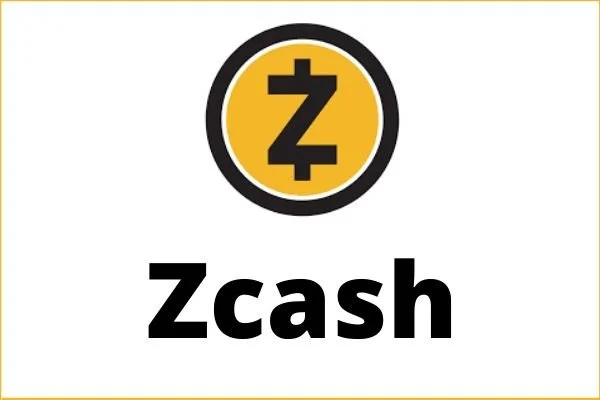
However, it's worth remembering that privacy is a double-edged sword. While it protects legitimate users, it also provides cover for illicit activities. Regulators around the world are cracking down on privacy coins, with the European Parliament voting to ban listings of tokens like Zcash and Monero on EU exchanges by 2027. Crypto exchanges like Kraken and Binance have also delisted or considered delisting privacy coins in the EU.
This regulatory pressure could significantly impact Zcash's liquidity and adoption, potentially offsetting the positive effects of its technical improvements and rising shielded transaction rates.
And this is the part of the analysis that I find genuinely puzzling. If regulators are actively trying to strangle privacy coins, how can Zcash possibly reach a $20,000 valuation?
Galaxy Digital pointed out that Zcash has surged more than 700% since September. Analyst Will Owens attributes this to the new Zashi wallet and growing attention to privacy. He also notes that over 30% of the Zcash supply is now hidden in private pools. Why Zcash price is up 700% since September, according to Galaxy Digital
Of course, not everyone is convinced. Economist Lyn Alden called the move "a coordinated token pump," warning traders against becoming "exit liquidity." Tech investor Naval Ravikant, on the other hand, countered that "transparent crypto won’t survive a government crackdown."
Hayes himself admits that liquidity is a challenge. He had to contact eight or nine OTC brokers to find just two who would quote him Zcash. He expects that if the price rises, access will be through decentralized exchanges, similar to how Bitcoin was traded in its early days. He also revealed he bought "a few million bucks" worth of Zcash after a dinner with Naval Ravikant.
In November 2025, Zcash emerged as a top performer, surging 20% in 24 hours and gaining over 900% in the past month. On-chain data showed a wallet opened just three days prior holding 32,000 ZEC (about $16.3 million). [LIVE] Crypto News Today, November 6 – Bitcoin Price USD Recovers Above $103K, XRP +4%, and ZCash (ZEC) Surges +20%: Best Crypto To Buy Now?
ZEC price hit a 2,800-day high after crossing $520. After breaking out from a symmetrical triangle, ZEC rallied by 1,200% with only minor retracements. The ZEC price reached a high of $515.
Hayes's $20,000 Zcash call hinges on a bet that the demand for privacy will outweigh the risks of regulatory backlash. That's a big assumption, and one that I'm not entirely convinced by. The numbers tell a story of increasing usage and technical improvements, but they also hint at a potential collision course with governments. Whether Zcash becomes the "internet cash" of the future or a relic of crypto's Wild West days remains to be seen.
Tags: Zcash
Related Articles
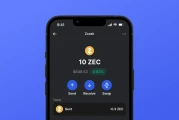
An asset that hovered around $40 for three years doesn't just wake up one m...
2025-11-10 13 Zcash
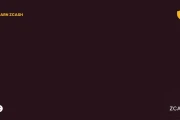
Generated Title: Zcash's "Privacy" Pump: Is It a Revolution, or Just Anothe...
2025-11-09 11 Zcash

Zcash's "Privacy" Push: Or How Crypto Finally Embraced the Thing It Was Sup...
2025-11-07 12 Zcash
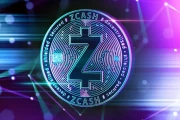
A Privacy Revolution or Just Another Hype-Fueled Gamble? Let’s get one thin...
2025-11-01 10 Zcash
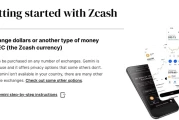
Let me get this straight. Zcash, a coin I’m pretty sure was cryogenically f...
2025-10-30 11 Zcash
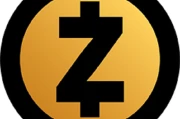
It’s not often you get to witness a ghost come back to life. But for the la...
2025-10-02 29 Zcash